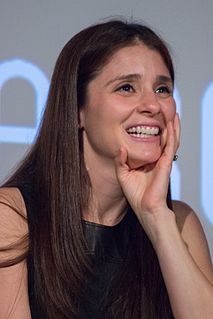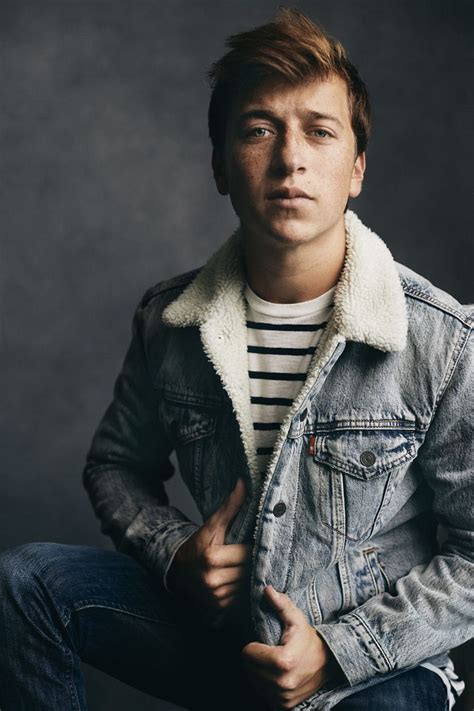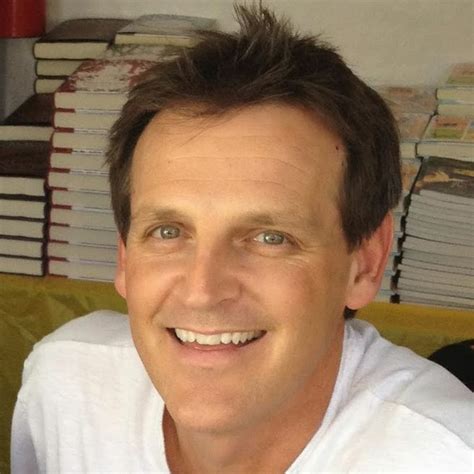A Quote by Shane Carruth
My job as an author - at least the way I think of it - is to make a story that is coded and puzzling enough to entice conversation and interpretation, but also to do the opposite: to make some things clear so that it is meaningful in some way, not just a random assemblage of ideas.
Related Quotes
Normally my process is to sit in a room and read a script and talk about it and ask questions and just create a dialogue. That goes all the way through shooting. All kinds of thoughts and ideas can find their way in there. As long as you're all on - We're just all trying to tell the story so my job as a director is just to find out what this film wants to be based on, it's just words on a page at some point but then it just needs to go to some level of believable storytelling. I'm discovering the film as I make it, to some degree.
As an actor, you don't really have a say or a voice in what the conversation of the show is going to be. So, as an actor, I'm just trying to make sense of why the character is making these choices, and somehow, in that way, you can sympathize or root, at least not detest, what this person is doing. That's, at least, my job in telling that story.
Just like I described in health care, yeah, somebody comes in, they got new ideas, maybe ideas that are completely opposite of my ideas. Maybe some of it goes, maybe some of that progress goes back. Maybe they think of some things we didn't think of, and so in some other areas - we can learn something.
Schoolchildren all over America are told to write to authors-often to authors whom they have never before heard of, whose work they are to young to understand in the least, and often in letters which are almost illiterate. If children are to be taught to respect the work of American poets I think some better way might be found to do so- some way which would not make such an inconsiderate demand on the author's time.
Lately I've been thinking about the idea that all novels are, at least in some way, about the process of writing a novel - that the construction of the book and the lineage of people constructing novels are always part of the story the author is telling. I think the equivalent for memoir should be that all memoirs are, in some way, about the process of memory. Memoirs are made out of a confusing, flawed act of creation.
We are not like the social insects. They have only the one way of doing things and they will do it forever, coded for that way. We are coded differently, not just for binary choices, go or no-go. We can go four ways at once, depending on how the air feels: go, no-go, but also maybe, plus what the hell let's give it a try.
There's an awful lot about our society that is at odds with the basic message of "don't smoke, be active, eat a healthy diet, and by the way control stress and get enough sleep." We don't make those things easy. We ideally would make health lie along the path of least resistance. But if not the path of least resistance, there at least needs to be a path so you don't have to bushwhack your way there.
When I say myself, I don't mean just as a woman of color, as a girl who's growing up in the Bronx, as people growing up in some way economically-challenged, not growing up with money. It was also even just the way we spoke. The vernacular. I learned that it's alright to say "ain't." My characters can speak the way they authentically are, and that makes for good story. It's not making for good story to make them speak proper English when nobody speaks like that on the playground.
Story ideas, but it's also musing on stuff that I'm thinking about. This leads me to this and this leads me to this. They're kind of random and haphazard. Often I can't find anything. Somehow, by doing that, even though I don't necessarily refer to them in a specific way, I have some sort of architecture in my head.
But that is the way of the place: down our many twisting corridors, one encounters story after story, some heroic, some villainous, some true, some false, some funny, some tragic, and all of them combining to form the mystical, undefinable entity we call the school. Not exactly the building, not exactly the faculty or the students or the alumni - more than all those things but also less, a paradox, an order, a mystery, a monster, an utter joy.
I think in some ways people kind of hate it, but most models recognize that it's a pretty easy job to make a lot of money at in a relatively short time, and you get to travel the world and meet a lot of interesting people. There are extreme highs and extreme lows. I think if it were as clear-cut as "models hate it," then they wouldn't do it. I really enjoyed a lot of the actual aspects of it, but not enough to make it my primary job. It can be quite empty, which is why I pursued other things.






































